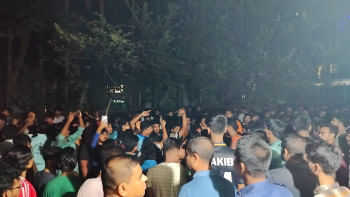Beijing mulls officials' asset disclosure
Asset disclosure for Chinese officials is likely to be slowly phased in over time, a senior Chinese Communist Party leader said yesterday, as the government grapples with the fraught task of rooting out the corruption.
The comments from Wang Yang, a member of the decision-making Politburo with a reputation as a reformer, came a day after the party opened a weeklong congress to install a new leadership with a call to fight corruption.
Speaking to reporters, Wang said that the province he runs, Guangdong, is exploring methods for officials to declare their wealth and that in the future public disclosure of assets will be required of all officials.
"I believe Chinese officials, in accordance with central rules, will gradually make public their assets," Wang said after a meeting with congress delegates from Guangdong. He did not give a time frame.
Wang's comments highlight the handwringing at many levels of the party over its inability to tamp down on the corruption by officials and their family members that has deepened public disgust.
At the congress' opening Thursday, President Hu Jintao warned that unrestrained graft threatened to topple the party's continued rule.
He called on the party's 82 million members to be ethical and to stop their family members from trading on their connections to amass fortunes.
The congress itself had no public agenda yesterday. Delegations met separately to discuss the lengthy report Hu delivered.
But in fact, most of the delegates have little say over the main agenda. The selection of younger leaders to replace Hu and his colleagues is done behind the scenes by the departing leadership, retired party elders and other power brokers.
Wang's views matter. An ally of Hu's from their days 30 years ago in the Communist Youth League, Wang has gone on to forge credentials as a reformer.
He has been considered a candidate for the new leadership, the Politburo Standing Committee, though party-connected scholars say his policies and popularity have brought a pushback from conservatives, diminishing his chances.
"All party members are reformers," Wang told reporters yesterday, brushing off a question about his prospects. "The report clearly states the goal of the party congress is to liberate thoughts, reform and open up, rally efforts and overcome obstacles. This will not change."
On corruption, however, the party has been in need of new thinking. The party, which controls courts, police and prosecutors, has proved feeble in policing itself yet does not want to undermine its control by empowering an independent body to do so.
Some officials have been required to report income, real estate holdings and other wealth to their superiors since 2010, but the measure has done little to staunch the graft.
A Politburo member, Bo Xilai, was cashiered after his wife murdered a British businessman, and he is accused of corruption and other misdeeds over two decades.
An aide to President Hu was demoted this summer after his son crashed a Ferrari he should not have been able to afford. Foreign media have also reported that family members of Hu's successor, Xi Jinping, and his prime minister, Wen Jiabao, have assembled vast fortunes.
Even so, a senior personnel officer for the party said yesterday that improving its internal controls and punishing transgressors remained at the top of the party's agenda.
The party is "confronted with growing dangers of lacking in drive and in competence and with detachment from the people and corruption," said Wang Jingqing, a vice minister of the Organisation Department.

 For all latest news, follow The Daily Star's Google News channel.
For all latest news, follow The Daily Star's Google News channel. 



Comments